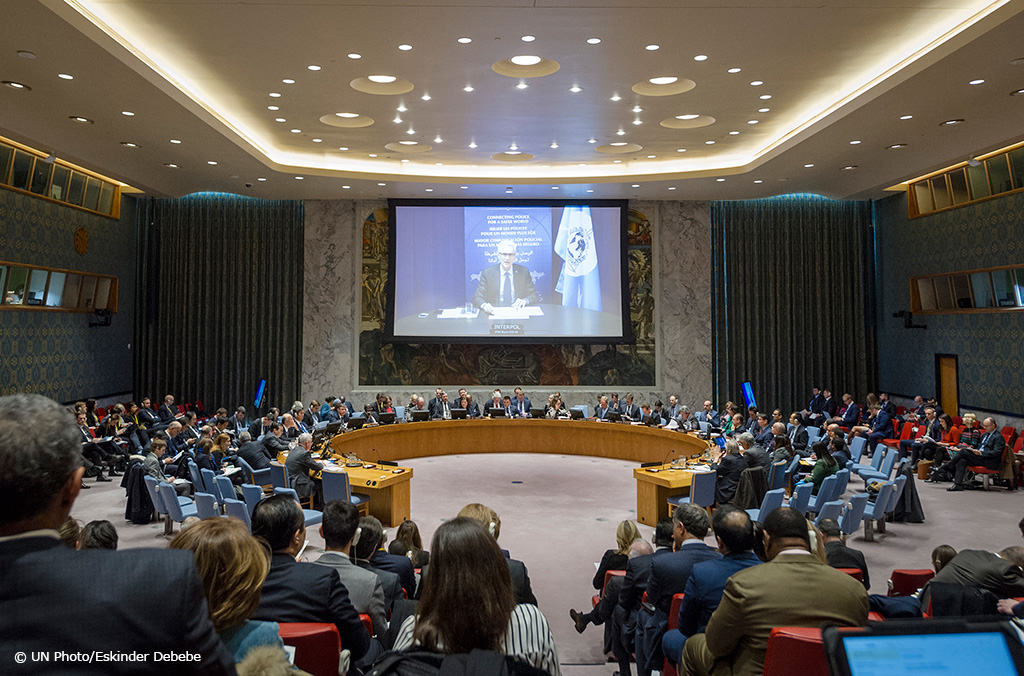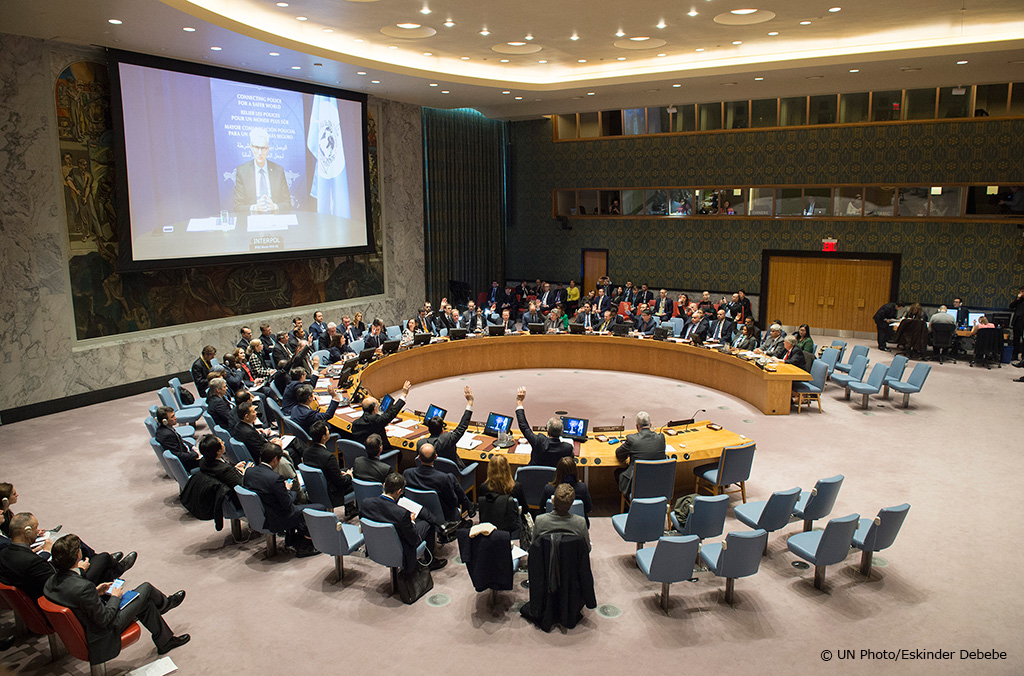UNITED NATIONS, New York – A Resolution adopted by the United Nations Security Council (UNSC) highlights INTERPOL’s global role in providing capacity-building and technical assistance to protect critical infrastructure from terrorists.
UNSC Resolution 2341 (2017), endorsed against a backdrop of recent terrorist attacks on critical infrastructure - including international airports in Brussels and Istanbul - underlines how protecting critical infrastructure requires international collaboration, both domestically and across borders.
It also highlights the need to enhance the exchange of operational information, including on the actions and movements of terrorists, with a range of stakeholders – governmental authorities, law enforcement, foreign partners and private sector owners and operators.
INTERPOL Secretary General Jürgen Stock said the interdependence of infrastructure across sectors and industries, between cyber and physical areas, and across national boundaries, means that the consequences of an attack could be far-reaching.
“One attack on a single point of failure could disrupt or destroy multiple vital systems in the country directly affected, causing a ripple effect worldwide. This creates an appealing target to those intending to harm us. As our cities and infrastructure evolve, so do the weapons of terrorists,” said Secretary General Stock.
“Conflict zone tactics – such as simultaneous active shooter events, armoured vehicle-borne improvised explosive devices or portable Unmanned Aerial Systems with explosive payloads – can be honed for use in our city streets and against key facilities.
“Law enforcement is keenly aware of a tragic paradox: a terrorist incident is often among the best opportunity for learning and improving. Sharing these lessons across borders means reaping the benefits, without paying that cost. It’s a win-win scenario,” concluded the INTERPOL Chief.
Underlining the need for all relevant actors to prepare, prevent, and respond to such attacks, Mr Stock said these imperatives are central to INTERPOL’s global efforts to promote intelligence sharing, capacity building and resilience in crucial areas.
These include strengthening critical site security with emergency preparedness standards and procedures. For instance, INTERPOL’s Vulnerable Targets unit works with member countries in West Africa to enhance the physical security of laboratories hosting dangerous pathogens and protect them from terrorist attacks.
In addition, INTERPOL continues to urge countries to protect their borders and counter terrorist mobility by sharing information on Foreign Terrorist Fighters (FTFs). Between October 2016 and January 2017 it saw a 63 per cent increase in the number of FTF profiles made accessible in real time through its global criminal information system, with some 13,500 profiles now shared via INTERPOL.
To mitigate the illicit trafficking of radiological and nuclear materials, INTERPOL also works closely with the International Atomic Energy Agency in monitoring and detection training, and cross-border operations.





